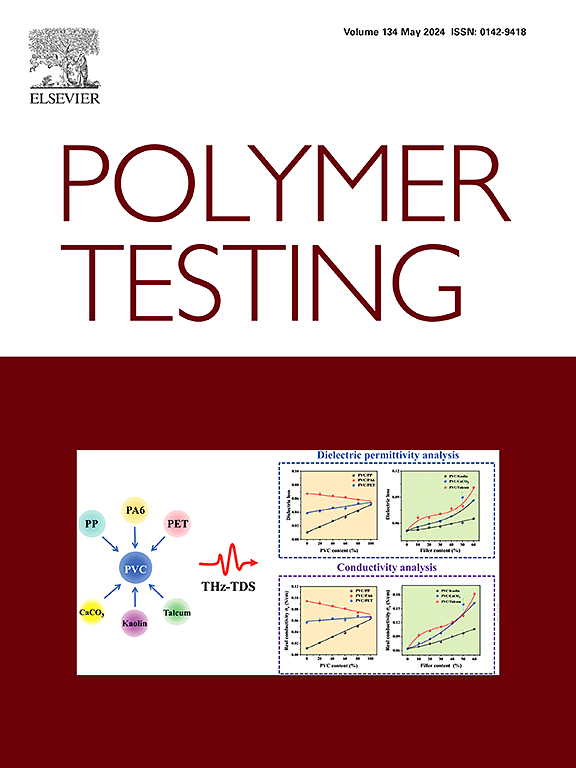Thermo-mechanical viscoelastic characterization and modeling of 4D printed shape memory polymers
IF 5
2区 材料科学
Q1 MATERIALS SCIENCE, CHARACTERIZATION & TESTING
引用次数: 0
Abstract
The majority of existing literature focuses on the characterization and modeling of conventionally synthesized shape memory polymers (SMPs). This work presents a detailed systematic thermo-viscoelastic characterization framework required for modeling 4D printed structures. Initially, the thermal properties were investigated to understand the behavior of the 4D-printed SMP under varying temperatures. Subsequently, thermo-viscoelastic experiments were conducted at various strain rates under tension and compression, covering temperature ranges from 25°C to 65°C. These tests revealed a strong dependency of mechanical behavior on both time and temperature. The stress-strain plots of the test temperature below the glass transition temperature demonstrated a clear yield point followed by a post-yield stress-softening. Under room temperature testing, a lower failure strain of ∼4 % was recorded at the fastest strain rate of 0.1/s. Moreover, temperature sweep, stress relaxation, creep, coefficient of thermal expansion (CTE) and strain-controlled shape memory tests were performed using a dynamic mechanical analyzer (DMA). A shape fixity of ∼97 % and a recovery ratio of ∼99 % was obtained in the shape memory tests. Finally, the experimental results were successfully utilized to calibrate a thermo-viscoelastic model from the literature. The shape memory effects were predicted with reasonable agreement with the test data. The findings of this study can be used in the development of complex, intricate 4D structures, providing deeper insights into their design.
求助全文
约1分钟内获得全文
求助全文
来源期刊

Polymer Testing
工程技术-材料科学:表征与测试
CiteScore
10.70
自引率
5.90%
发文量
328
审稿时长
44 days
期刊介绍:
Polymer Testing focuses on the testing, analysis and characterization of polymer materials, including both synthetic and natural or biobased polymers. Novel testing methods and the testing of novel polymeric materials in bulk, solution and dispersion is covered. In addition, we welcome the submission of the testing of polymeric materials for a wide range of applications and industrial products as well as nanoscale characterization.
The scope includes but is not limited to the following main topics:
Novel testing methods and Chemical analysis
• mechanical, thermal, electrical, chemical, imaging, spectroscopy, scattering and rheology
Physical properties and behaviour of novel polymer systems
• nanoscale properties, morphology, transport properties
Degradation and recycling of polymeric materials when combined with novel testing or characterization methods
• degradation, biodegradation, ageing and fire retardancy
Modelling and Simulation work will be only considered when it is linked to new or previously published experimental results.
 求助内容:
求助内容: 应助结果提醒方式:
应助结果提醒方式:


